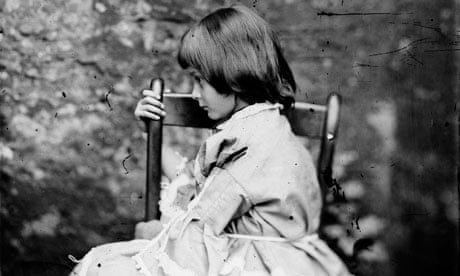… words have two (or more) meanings
He arrived in the city he had known intimately, though now it was different. The signs said what they had always said, but everything had changed. The café on the corner was still there, but when he ordered coffee, the waiter brought him something else—something darker and thicker, but not coffee. He drank it anyway.
In the square, a man stood on a metal crate speaking in a steady voice. The crowd nodded. Their faces looked tired, but they understood. The traveler listened carefully, but the words made no sense. He asked a woman beside him what the man was saying.
She studied him for a moment, uncertain if she should respond. Then she leaned in. It means what it needs to mean, she whispered.
The traveler nodded. He did not understand, but he nodded. It was easier that way.
Linguistic Omelette
Humpty Dumpty sat on a wall,
Humpty Dumpty had a great fall;
All the king's horses and all the king's men
couldn't put Humpty together again.
For a long time, I knew Humpty Dumpty only as a nursery rhyme.
Lewis Carroll reimagined him in Through the Looking-Glass1 as a pompous wordsmith. In a conversation with Alice, he insists that words mean whatever he wants them to mean: When I use a word, it means just what I choose it to mean—neither more nor less.
Alice, ever the reasonable skeptic, pushes back, questioning whether words can mean whatever he wanted. Humpty, the authoritarian, claims absolute control over language, reinforcing his belief with sheer confidence rather than logic.
Sounds familiar, doesn’t it? In 2025, we live in that tension between Humpty Dumpty's authoritarian word-games and linguistic anarchy. Words have become performative rather than communicative.
Whether it's the tech giants promising connection while designing for addiction or populists defining greatness to mean meanness, we seem to be slipping into a Humpty Dumpty World where language is wielded for influence, rather than clarity.Lewis Carroll wrapped this deep, unsettling truth in a charming, playful package—much like George Orwell2, but with a wink rather than a warning siren. Where Orwell feared language being hijacked to suppress thought (Newspeak), Carroll saw how language wasn't just about control; it could also be about play.3
Jabberwocky
… is a masterpiece of linguistic play, a heroic tale full of nonsense words that somehow make perfect sense:
Twas brillig, and the slithy toves
Did gyre and gimble in the wabe:
All mimsy were the borogoves,
And the mome raths outgrabe.
Despite the total gibberish, we grasp its essence—a tale of creatures doing strange things in an unfamiliar world, culminating in the slaying of the fearsome Jabberwock. The structure, rhythm, and grammar create meaning even when the words don’t.
If Jabberwocky proves that structure creates meaning even when words don't make sense, then what does that say about our world, where empty slogans, slop, and buzzwords hold power?
Are we trapped in Humpty Dumpty's power struggle, or are we all Jabberwocky-ing and pretending it means something?Viktor Pivovarov’s work cheekily captured a similar dissonance between the Soviet ideal and everyday reality. Clean lines, muted colors, a quiet tension that lets the propaganda peel on its own.
In this painting, absurdity isn’t loud—it’s bureaucratically tidy. The rupture, like a well-timed shrug, is just another line on the form.
New Meaning

The egg can’t be unscrambled. The old order, now shattered, can’t be reconstructed as it once was. Just before we rebuild, we pause.
Pivovarov reminds us that fracture isn’t always loud or dramatic. Sometimes it’s neat, tidy, filed in triplicate. (He) Hit Me with a Hammer and Burst into Tears isn’t chaos—it’s absurdity made domestic. A quiet bureaucracy of collapse.
The ideal, still framed on the wall. The real, quietly breaking beneath it.
But perhaps instead of attempting to restore what was, we might reimagine what could be.
Accelerating AI capabilities will add another layer of complexity. Will AI be the king's horses galloping in to help, or will it push us further into Alice’s wonderland where meaning itself becomes increasingly slippery?
I remain optimistic. Perhaps we were never meant to reconstruct Humpty exactly as he was. Perhaps the nursery rhyme's ending isn't a tragedy but an invitation.
Humpty Dumpty's lineage continues not through whole eggs sitting smugly on walls, but through a messy, creative process of finding meaning amidst the fragments.
And in that shared meaning-making — that collective quest for clarity — lies our most hopeful path forward.The Humpty Dumpty nursery rhyme predates Through the Looking Glass by at least a couple of centuries. The rhyme first appeared in print in 1797, though it was likely circulating in oral tradition even earlier. Through the Looking Glass was first published 1871 but its playfulness and subtle messages still resonate 150 years later.
Spelling Bees are another form of linguistic play: Faizan Zaki won the Scripps National Spelling Bee recently. The winning word? Éclaircissement—a French word describing the bloating caused by eating too many desserts. I know that feeling but I didn’t know there was a word like this.






So Well Analysed —The ideal, still framed on the wall. The real, quietly breaking beneath it.
“But perhaps instead of attempting to restore what was, we might reimagine what could be.”